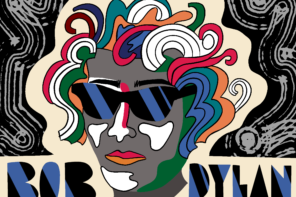With all the revelations coming to light about the mistreatment of women in Hollywood and the film industry, there are other areas of entertainment that must also be discussed in this context. One to comment on the gruesome issues within the music industry is the UK’s up-and-coming rock band, Wolf Alice. The London-based four-piece group recently released their second album, Visions of a Life, quickly competing for a number one against Shania Twain. The album is absolutely stellar – not only due to its dazzling soundscapes and trendy, gothic film photography album cover, but because it also stands as pertinent social commentary.
Wolf Alice borrowed their band name from Angela Carter’s The Bloody Chamber; a picaresque collection of short-stories based on experimental models of writing and demythologizing classical fairytales. Carter’s short story “Wolf Alice” describes a young girl’s coming-of-age, as she develops her humanity in a prior life surrounded by wolves. Similarly, the band make soundtracks of teenage years, describing wild adventures with best friends, juvenile crushes, and the ‘honeymoon’ phase of a relationship between youth. While in My Love Is Cool, Carter’s story is just the foundation of the band’s romanticisation of such events, Visions Of A Life creates its auditory context.
Since the birth of the music industry, female talent has been marginalized into gaining popularity through vexing marketing strategies
The album, like all of Carter’s literature, explores irreverent feminism – portraying women who succumb to the traditional stereotypes to please their old-fashioned, sexist love-interests, and consequently weaken the men and empower themselves. For instance, in the Tarantino-esque track “Formidable Cool,” the band sings of a girl obsessed with a dangerous ‘wolf,’ who promises her unique knowledge. She seduces him with enchanting female traditionality; he gifts her with secrets exclusive to the wise and elderly. As she studies them, she explores her abilities, which eventually leads to her own empowerment. Wolf Alice, like Angela Carter, consider sexual awakening as something that comes at a price – a popular topic of discussion in gothic literature.
Since the birth of the music industry, female talent has been marginalized into gaining popularity through vexing marketing strategies. Ke$ha is a great example – I personally remember bumping to her tunes with my friends all throughout middle school, pretending we were at a party wilder than my school’s common room. I was too young to philosophize the pop-icon’s rise to fame. But now, I can ask: Would Ke$ha still be famous without her sexy, licentious image? Luring listeners with nudity, promiscuous dance moves, or debauched lyrics is not wrong, but I cannot imagine anything worse than working in an industry that mandates it.
In most entertainment environments, it is beneficial to market female artists strictly sexually so they gain quick popularity. An artist’s audience expands not only through the quality of their art, but also through scandalous events marketing a controversial archetype. However, being overly promiscuous bores the public, so in order to be successful, female artists must judge when to be wanton.
In the song, frontwoman Ellie Rowsell rails against the misogynistic industry standards for females
The blame doesn’t all go to the industry. Obviously, by enforcing such stereotypes, industry figureheads must be held accountable for their marketing strategies. However, we as consumers inspire the creation of such content. The total abolition of unfair standards within entertainment could only come from ending its consumption. Needless to say, giving up pop music, films, TV, radio, or news outlets is an impossible action in the 21st century, especially with sources’ user-friendliness, accessibility, and relevance.
A step towards combatting unfair standards within the industry may lie in supporting movements that raise awareness of them. When “Yuk Foo” – the second track on Vision Of A Life – was released as a single, it teased the album’s rebellious stance against issues in the music industry. Even without the punk-inspired heavy guitar strums and echoes of smashing drums, the title itself is a cheeky play on a famous, ferocious phrase. In the song, frontwoman Ellie Rowsell rails against the misogynistic industry standards for females – repetitively screaming “you bore me to death, I don’t give a shit!” While not explicitly stating that the song is about her experience as a female in a male-dominated industry, the frontwoman discusses defying what’s expected of her, saying, “I wanna fuck all the people I meet, fuck all my friends all the people on the street!” Similarly, yet through a calmer, more alternative tone, “Beautifully Unconventional” highlights the life of a girl stuck between her fragile, projected public image, and inner rebellious heart. Rowsell describes her as “a walking contradiction, cute with such conviction, but dark as a devil who walks.”
So will recording an album of pure rebellion against the music industry itself make a difference? Wolf Alice have shown how it’s done – if you’re willing to test whether their growing popularity and media exposure is enough to inspire change, give the shoegaze and post-modernist lyrics of Visions of a Life a listen. You won’t be disappointed.








